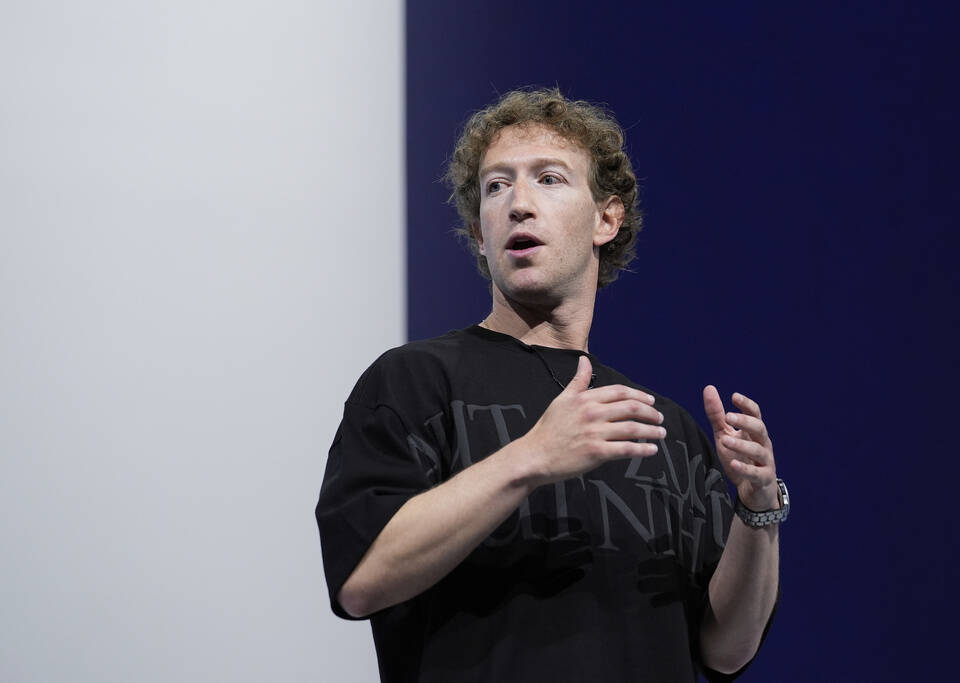In a victory for free speech, Meta announced that it is bringing back “civic content” and ending its third-party factchecking program on Facebook and Instagram after censorship ran amok.
Meta CEO Mark Zuckerberg explained the decision in a video post, during which he admitted the social media giant strayed too far from its original mission. The new direction comes just two weeks before Donald Trump returns to the White House.
On Wednesday’s show, Megyn was joined by the hosts of The Fifth Column – Kmele Foster, Michael Moynihan, and Matt Welch – to discuss Meta’s decision and why it is a cause for optimism.
Meta’s New Messaging
In a five-minute video shared on Tuesday, Zuckerberg admitted Meta and, more specifically, Facebook has been responsible for “too much censorship” in recent years and will now return to its original focus on free speech.
“We’re going to get back to our roots and focus on reducing mistakes, simplifying our policies, and restoring free expression on our platforms,” Zuckerberg said. “What started as a movement to be more inclusive has increasingly been used to shut down opinions and shut out people with different ideas… It’s gone too far.”
As such, Meta will end its controversial third-party fact-checking program and instead introduce crowd-sourced “Community Notes” à la Elon Musk’s X. In a press release, the company’s new chief global affairs officer, Joel Kaplan, said they “think this could be a better way of achieving our original intention of providing people with information about what they’re seeing – and one that’s less prone to bias.”
In another nod to X, Meta will be moving its content moderation team from California to Texas to help protect against groupthink. “As we work to promote free expression, I think that will help build trust to do this work in places where there’s less concern about the bias of our team,” Zuckerberg said.
Additionally, so-called “civic” (read: political) content will no longer be suppressed on Facebook. “We’re going to start treating civic content from people and Pages you follow on Facebook more like any other content in your feed,” Kaplan’s release reads. “We are also going to recommend more political content based on these personalized signals and are expanding the options people have to control how much of this content they see.”
Why Now?
The massive about-face comes on the heels of Zuckerberg meeting with Trump at Mar-a-Lago late last year and donating $1 million to his inaugural fund.
Last week, Kaplan, a former senior adviser to President George W. Bush, was tapped to replace leftist Nick Clegg, a former deputy prime minister of Britain, as Meta’s head of global policy. And the company announced on Monday that UFC president and CEO Dana White would be one of three new members appointed to its board of directors.
All of this has led many on the left and in the media to claim Zuckerberg is bending the knee to the incoming administration, but Welch believes the move is sincere. “I don’t actually want him to be responding to government pressure in any direction… [and] that is how the left is now describing this,” he said. “I don’t necessarily think that that is the case.”
He described how Meta found itself in this position to begin with. “Let’s be honest, [Zuckerberg] has been as browbeaten as any executive in the country… since… the day after the election in 2016 because the left absolutely freaked out and blamed Russia, and Cambridge Analytica, and Vladimir Putin, and the Cookie Monster living under their bed for Donald Trump winning,” he recalled. “And by that point, Facebook was large enough that it did what large companies tend to do, which is, ‘Don’t kick me too much and don’t do anything that gets rid of my dominant position in the market. You want some regulations? I’ll help you write them.’ That is what big companies tend to do.”
Welch said Zuckerberg “played ball” at the time because he was “pressured to” and it was “expedient” for him, but it no longer is. “He’s been describing himself more as libertarian over the years, which is very good,” Welch said of Zuckerberg. “And this is a moment that is kind of crystallizing a certain cultural vibe shift, if nothing else.”
‘We’re Winning’
Regardless of why Meta is now changing its tune, Foster believes it will result in a better experience for all of its users. “I think there are plenty of criticisms that one can raise with respect to something like Community Notes,” he said. “But it does seem to me that it is infinitely better than what Facebook chose to do when they outsourced responsibility for this to these ostensibly independent organizations that, in many instances, have these political biases.”
He sees the Community Notes process working much like the betting markets did during the 2024 election cycle. “In the last election, we saw some of these betting markets give us some of the best information about where the election was likely to go,” Foster noted. “The Community Notes process works something like that, so there is plenty of reason to think that that could be a very healthy thing.”
While Megyn said Zuckerberg is a “day late and a dollar short” to the “free speech party,” she is happy to welcome him in. “All I can think is: We’re winning this free speech fight,” she concluded. “This is a sign of that.”
You can check out Megyn’s full interview with The Fifth Column by tuning in to episode 978 on YouTube, Apple Podcasts, or wherever you like to listen. And don’t forget that you can catch The Megyn Kelly Show live on SiriusXM’s Triumph (channel 111) weekdays from 12pm to 2pm ET.


